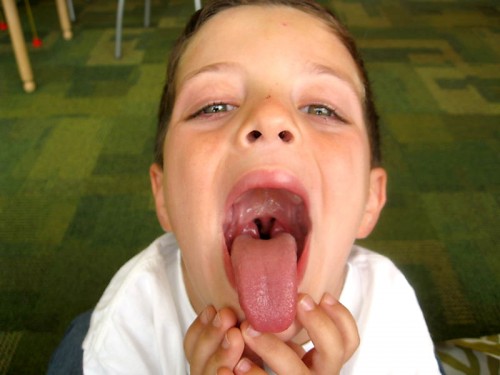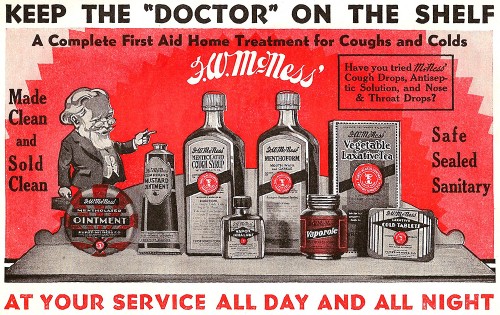The summer travel season is upon us, at least here in the U.S., and for most of us it means dusting off the car games for the kids to use between bathroom stops as we cruise across the country on vacation.
Read more→
This post begins the series of TEN Travel Diseases you shouldn’t forget to consider if you’re lucky (and brave) enough to be taking a vacation this year which involves some degree of traveling – especially across some borders. And remember, the more borders you cross, the more of these you should consider.
You may or may not have even heard of them (hence writing these posts) but be assured, they are still alive and well in the world. And many still here in parts of the United States!
Here is the index to the Ten Travel Diseases series:
3 Posts in "Travel Diseases" Series
- 10 Travel Diseases: Intro/Index – 7 May 2015
The Intro/Index to the Ten Travel Diseases Curated Posts Series
- Ebola, MERS, CHIKV, Measles, Polio – 7 May 2015
You traveling this year on your vacation? There are a few things we ought to keep in mind – medically speaking – in order to avoid experiencing a vacation that just “keeps on giving” long after you’d like it to be over. I'll list 10 of them, this post containing the first five: Ebola, MERS, CHIKV, Measles and Polio.
- Cholera, Bird Flu, TB, Malaria and Yellow Fever – 11 May 2015
Here are the second five (of the ten) travel diseases I'm discussing. Things that you might want to take into consideration, especially when you're crossing borders. Cholera, Bird Flu, TB, Malaria and Yellow Fever.
Due to editing and space constraints, my (newspaper) article on tonsillectomy two weeks ago did not present the entire picture of how physicians feel about this surgical procedure… and generated several additional questions – which we will cover here.
Read more→
I have been asked several times this week about tonsillectomy – whether or not a child should have their tonsils taken out by surgery. Usually the question is in response to a sore throat of some kind, whether or not there is an infected tonsil.
There are just so many variables (i.e. whether it is acute or chronic, allergic or contagious etc.) that my reply must be largely individualized; so, a short article cannot adequately cover the topic.
Read more→
Trying to catch up on all the recent research findings about infant nutrition, specifically breastfeeding, we’ve already described a fair number of new findings. We’ll conclude today with a fairly comprehensive listing of new recommendations. Read more→
One of the most common topics for medical articles these days (besides immunizations) is breast feeding. There’s really a lot of them. It’s almost like people are trying to make a point.
Read more→
The most recent research into children’s growth and development these days has given rise to changes in the way we think of nutrition.
Frankly, for those of us with… ahem, a bit of experience, our better tools to measure outcomes have produced findings that are a bit startling; especially as it relates to breastfeeding.
Pediatricians, at least all that I know, have always considered “Breast Is Best” but infant formulas were acceptable alternatives. Then, formulas got even better and better as our understanding of nutrition improved. Then, advances in mass data sharing and long term follow-up studies came into being.
Now, we understand better (in the long term) what some of the benefits are. Bottom line, the topic deserves a series of its own, and begins with reporting the results of an extensive study into the benefits of breastfeeding.
3 Posts in "Breastfeeding" Series
- Breastfeeding Series: Intro/Index – 14 Mar 2015
A collection of posts about breastfeeding: latest research, advantages, methods and practical tips.
- Research findings – 16 Mar 2015
Breastfeeding vs. Bottlefeeding - latest research, advantages and disadvantages. Suggestions and tips.
- Recommendations and standards – 24 Mar 2015
Continuing from the previous article we’ll conclude today with a fairly comprehensive listing of new recommendations. Apparently, more benefits than previously realized; and, frankly, a bit startling.
We’ve been reviewing all the new pediatric health-care guidelines published last year in the past two articles. So far we’ve found that new research prompted governing groups to release care-guidelines for Congenital Dislocated Hips, Calcium supplementation, Fluoride supplementation, Read more→
Eight major sets of published guidelines for children’s health care were developed in 2014. We are discussing them (in lay terms) and how they affect the way we help children stay healthy.
Read more→
Today we go from previous posts on “Vintage Medical Advice” to several new treatment guidelines so “hot off the press” they are still smoking!
Read more→
Two Thousand Fourteen was a busy year for medical organizations making treatment guidelines. I counted at least seven of them applicable to children, from ACL (Anterior Cruciate Ligament) tears to Flu Vaccinations.
Of course, these are made so physicians can have the advantage of new research and developments being analyzed and recommended by specialty organizations; and so there might be at least some standardization in treatment.
4 Posts in "2014 Medical Guidelines" Series
- 2014 Medical Guidelines: Intro/Index – 2 Feb 2015
The Intro/Index to the 2014 Medical Guidelines Curated Series of posts.
- Dislocated Hips, Calcium and Flouride – 3 Feb 2015
We go from previous posts on “Vintage Medical Advice” to several new treatment guidelines so “hot off the press” they are still smoking! Dislocated Hips, Calcium and Flouride
- RSV, Drug Testing – 7 Feb 2015
Today we’ll cover new 2014 guidelines for the prophylaxis against Respiratory Syncytial Virus (RSV) as well as how we now think best to handle drug testing in children and teens.
- ACL Tears, Flu Vaccination and Autism – 15 Feb 2015
We’ll finish the set of new 2014 Healthcare Guidlines by examining the new recommendations for physicians treating: Anterior Cruciate Ligament (ACL) Tears, Influenza Vaccination and Autism Spectrum Disorders (ASD).
If you’re wondering about how guidelines are made you may like to try a previous post about evidence-based medicine in the top 50 doctors of all time series.
One only needs to peruse the pages of an old medical text to see how much things have changed in the past 100 years.
Read more→
:











